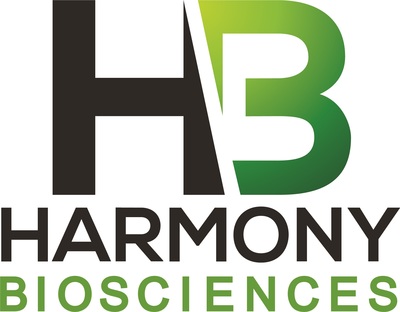Harmony Biosciences Enrolls First Patient In Phase 2 Trial Evaluating Pitolisant For Excessive Daytime Sleepiness In Patients With Prader-Willi Syndrome
Harmony Biosciences (HRMY) announced that the first patient has been enrolled in a Phase 2 trial assessing pitolisant for treating excessive daytime sleepiness (EDS) in patients with Prader-Willi Syndrome (PWS). This double-blind study will involve 60-70 patients across 10 U.S. sites, aiming for topline results in the first half of 2022. The trial's primary goal is to evaluate improvements in EDS, which affects over half of the 15,000 to 20,000 PWS patients in the U.S. The study represents a significant step in addressing unmet medical needs for this rare disorder.
- First patient enrolled in Phase 2 trial for pitolisant in PWS.
- Potential to address unmet medical needs for EDS in PWS patients.
- Collaboration with key organizations like the Foundation for Prader-Willi Research.
- Topline results not expected until the first half of 2022.
- Trial involves randomized placebo control, which may limit immediate patient access to treatment.
Insights
Analyzing...
PLYMOUTH MEETING, Pa. and CHICAGO, Dec. 15, 2020 /PRNewswire/ -- Harmony Biosciences Holdings, Inc. ("Harmony") (Nasdaq: HRMY), a pharmaceutical company dedicated to developing and commercializing innovative therapies for patients living with rare neurological disorders who have unmet medical needs, today announced the first patient has been enrolled in a Phase 2 trial evaluating the safety and efficacy of pitolisant for the treatment of excessive daytime sleepiness (EDS) and other key symptoms in patients with Prader-Willi Syndrome (PWS).
"We view pitolisant as a portfolio in a product opportunity and are taking a mechanism-based approach to drug development in managing its life cycle with the goal of expanding its clinical utility," said Harmony's Chief Medical Officer, Jeffrey Dayno, M.D. "We believe pitolisant could offer an important therapeutic benefit in people living with PWS based on preclinical models of the disorder, pitolisant's demonstrated efficacy in improving EDS in patients with narcolepsy, and anecdotal evidence in patients with PWS. We look forward to continuing our collaboration with the Foundation for Prader-Willi Research, the Prader-Willi Syndrome Association USA, and the patient and family community as we advance our development program in order to help address this unmet medical need."
PWS is a genetic orphan/rare neurological disorder with many of the symptoms resulting from hypothalamic dysfunction. The hypothalamus is the part of the brain that controls both sleep-wake state stability and signals that mediate the balance between hunger and satiety. The hypothalamic dysfunction in patients with PWS results in two of the main symptoms of the disorder: EDS and hyperphagia (an abnormally increased appetite for and consumption of food). Other features include low muscle tone, short stature, behavioral problems and cognitive impairment. Approximately 15,000 to 20,000 people in the U.S. live with PWS, and over half of them experience EDS.
"We support and encourage research that can potentially help reduce the symptom burden for children and adults living with PWS. We are grateful that Harmony is studying pitolisant in a clinical trial, which may bring us one step closer to finding an important therapeutic advancement," said John Walter, Chief Executive Officer, Foundation for Prader-Willi Research and Paige Rivard, Chief Executive Officer, Prader-Willi Syndrome Association USA in a joint statement.
The Phase 2 clinical trial is a randomized, double-blind, placebo-controlled study designed to assess the safety and efficacy of pitolisant in patients with PWS ages 6-to-65. An estimated 60-70 patients will be enrolled at approximately 10 sites across the United States. Patients will be randomized to receive one of two doses of pitolisant or placebo for eight weeks of stable dosing following a three-week titration period. The trial's primary objective is to assess improvement in EDS as measured by the Multiple Sleep Latency Test. Topline results are anticipated in the first half of 2022. Patients who complete the trial will be eligible to participate in an open-label extension phase to assess the long-term safety and effectiveness of pitolisant.
"I have seen first-hand the debilitating effects this rare disease can have on patients with Prader-Willi Syndrome," said Dr. Daniel Glaze from Baylor College of Medicine and Texas Children's Hospital, and investigator in the Phase 2 clinical trial. "Excessive daytime sleepiness is more common in patients with PWS than previously appreciated and results in significant impact on daily functioning. In addition, EDS has not been studied in clinical trials to date in patients with PWS. I look forward to participating in this trial to assess the effect of pitolisant on EDS and other related symptoms."
Pitolisant is marketed as WAKIX® in the U.S. for the treatment of EDS or cataplexy in adult patients with narcolepsy.
About WAKIX® (pitolisant) Tablets
WAKIX, a first-in-class medication, is approved by the U.S. Food and Drug Administration for the treatment of excessive daytime sleepiness or cataplexy in adult patients with narcolepsy. WAKIX has been commercially available in the U.S. since Q4 2019. It was granted orphan drug designation for the treatment of narcolepsy in 2010. WAKIX is a selective histamine 3 (H₃) receptor antagonist/inverse agonist. The mechanism of action of WAKIX is unclear; however, its efficacy could be mediated through its activity at H₃ receptors, thereby increasing the synthesis and release of histamine, a wake promoting neurotransmitter. WAKIX was designed and developed by Bioprojet (France). Harmony has an exclusive license from Bioprojet to develop, manufacture and commercialize pitolisant in the United States.
Important Safety Information
WAKIX is contraindicated in patients with known hypersensitivity to pitolisant or any component of the formulation and in patients with severe hepatic impairment. WAKIX is extensively metabolized by the liver and there is a significant increase in WAKIX exposure in patients with moderate impairment.
WAKIX prolongs the QT interval. Avoid use of WAKIX in patients with known QT prolongation or in combination with other drugs known to prolong the QT interval. Avoid use of WAKIX in patients with a history of cardiac arrhythmias, as well as other circumstances that may increase the risk of the occurrence of torsade de pointes or sudden death, including symptomatic bradycardia, hypokalemia or hypomagnesemia, and the presence of congenital prolongation of the QT interval.
The risk of QT prolongation may be greater in patients with hepatic or renal impairment due to higher concentrations of pitolisant; monitor these patients for increased QTc. Dosage modification is recommended in patients with moderate hepatic impairment and moderate or severe renal impairment. WAKIX is not recommended in patients with end-stage renal disease (ESRD).
In the placebo-controlled clinical trials conducted in patients with narcolepsy with or without cataplexy, the most common adverse reactions (≥
Please see the Full Prescribing Information for WAKIX for more information.
About Harmony Biosciences
Harmony Biosciences is a commercial stage pharmaceutical company headquartered in Plymouth Meeting, PA and Chicago, IL. The company was established by Paragon Biosciences, LLC, and is focused on providing novel treatment options for people living with rare, neurological disorders who have unmet medical needs. For more information on Harmony Biosciences, please visit the company's website: www.harmonybiosciences.com.
Forward Looking Statement
This press release contains forward-looking statements within the meaning of the Private Securities Litigation Reform Act of 1995. All statements contained in this press release that do not relate to matters of historical fact should be considered forward-looking statements, including statements regarding our product WAKIX®. These statements are neither promises nor guarantees, but involve known and unknown risks, uncertainties and other important factors that may cause our actual results, performance or achievements to be materially different from any future results, performance or achievements expressed or implied by the forward-looking statements, including, but not limited to, the following: our commercialization efforts and strategy for WAKIX®; the rate and degree of market acceptance and clinical utility of WAKIX®, pitolisant in additional indications, if approved, and any other product candidates we may develop or acquire, if approved; our research and development plans, including our plans to explore the therapeutic potential of pitolisant in additional indications; our ongoing and planned clinical trials; our ability to expand the scope of our license agreement with Bioprojet; the availability of favorable insurance coverage and reimbursement for WAKIX®; the impact of the COVID-19 pandemic; the timing of and our ability to obtain regulatory approvals for pitolisant for other indications as well as any other product candidates; our estimates regarding expenses, future revenue, capital requirements and needs for additional financing; our ability to identify additional products or product candidates with significant commercial potential that are consistent with our commercial objectives; our commercialization, marketing and manufacturing capabilities and strategy; significant competition in our industry; our intellectual property position; loss or retirement of key members of management; failure to successfully execute our growth strategy, including any delays in our planned future growth; our failure to maintain effective internal controls; the impact of government laws and regulations; volatility and fluctuations in the price of our common stock; and the significant costs and required management time as a result of operating as a public company; the fact that the price of the company's common stock may be volatile and fluctuate substantially; significant costs and required management time as a result of operating as a public company. These and other important factors discussed under the caption "Risk Factors" in our Quarterly Report on Form 10-Q filed with the Securities and Exchange Commission (the "SEC") on November 12, 2020, and our other filings with the SEC could cause actual results to differ materially from those indicated by the forward-looking statements made in this press release. Any such forward-looking statements represent management's estimates as of the date of this press release. While we may elect to update such forward-looking statements at some point in the future, we disclaim any obligation to do so, even if subsequent events cause our views to change.
Harmony Biosciences Media Contact:
Nancy Leone
215-891-6046
nleone@harmonybiosciences.com
Harmony Biosciences Investor Contact:
Lisa Caperelli
484-539-9736
lcaperelli@harmonybiosciences.com
![]() View original content to download multimedia:http://www.prnewswire.com/news-releases/harmony-biosciences-enrolls-first-patient-in-phase-2-trial-evaluating-pitolisant-for-excessive-daytime-sleepiness-in-patients-with-prader-willi-syndrome-301192466.html
View original content to download multimedia:http://www.prnewswire.com/news-releases/harmony-biosciences-enrolls-first-patient-in-phase-2-trial-evaluating-pitolisant-for-excessive-daytime-sleepiness-in-patients-with-prader-willi-syndrome-301192466.html
SOURCE Harmony Biosciences







